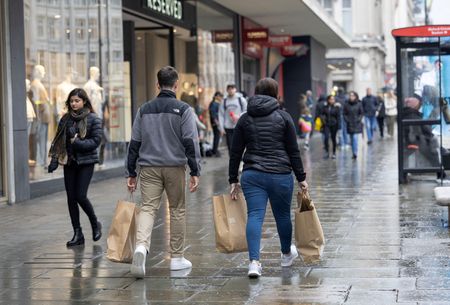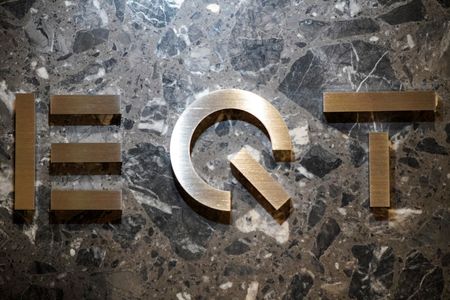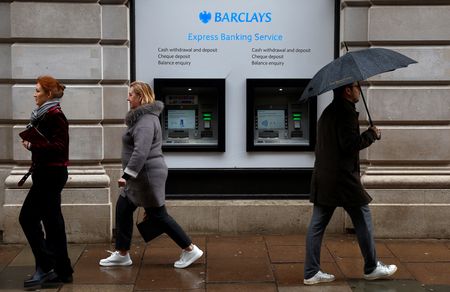By Andy Bruce
(Reuters) – British business confidence held steady this month, matching February’s six-month high and adding to tentative signs of an uptick in the economy in early 2025, a survey showed on Monday.
The Lloyds Bank Business Barometer stayed at 49% in March, with a particular strong showing for retailers – chiming with official data last week that showed an unexpected surge in retail sales volumes in February.
Businesses’ confidence about their own trading prospects – as opposed to the wider economy – rose to the highest since 2017.
The survey follows a stronger-than-expected outturn last week from the closely-watched S&P Global purchasing managers’ indexes (PMIs).
Together these indicators suggest British economic growth picked up slightly after a tepid end to 2024, although economists warn that coming tax hikes on employers and a rise in regulated household energy bills in April could impede a more sustained recovery.
British companies are also waiting to hear how badly they will fare when the United States levies further tariffs on its trading partners this week.
Manufacturing sentiment fell sharply in the Lloyds survey, as it did in the S&P Global report.
“Business confidence remained steady this month, suggesting that UK companies may have been waiting to see the impact of government decisions at home and globally,” Hann-Ju Ho, senior economist at Lloyds Commercial Banking, said.
“Despite this, today’s data continues to reflect a positive growth trend in the UK economy,” he added.
A separate survey of financial services executives from KPMG showed a slight fall in profitability expectations for the second quarter of 2025, although they remained upbeat about business prospects overall.
Companies in the Lloyds survey reported a slight drop in economic confidence and hiring intentions, while pay expectations, watched closely by the Bank of England, also receded. Price expectations edged lower too.
(Reporting by Andy Bruce; editing by David Milliken)









